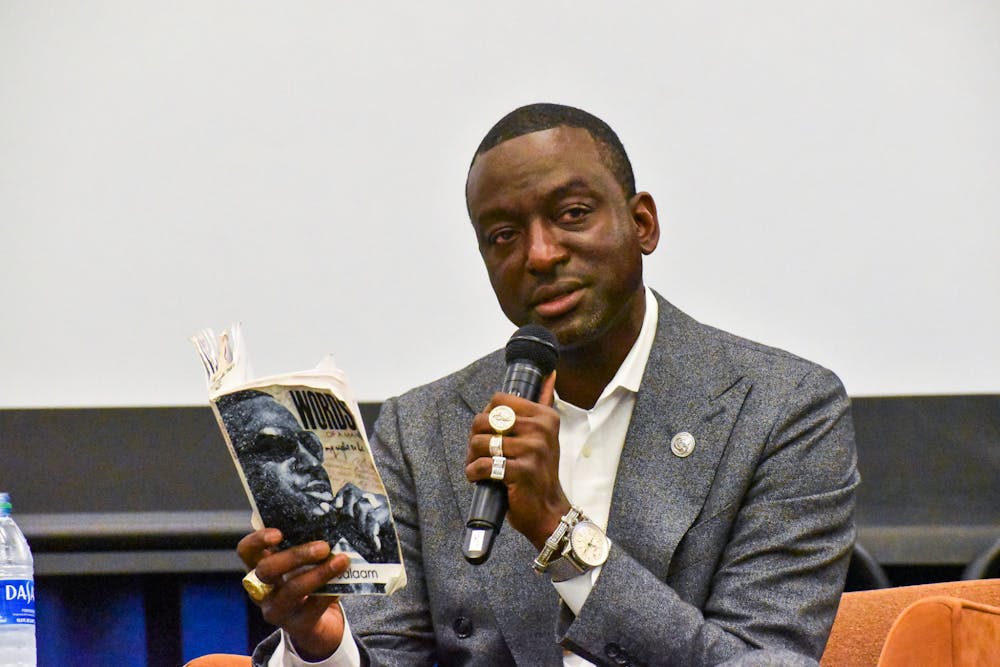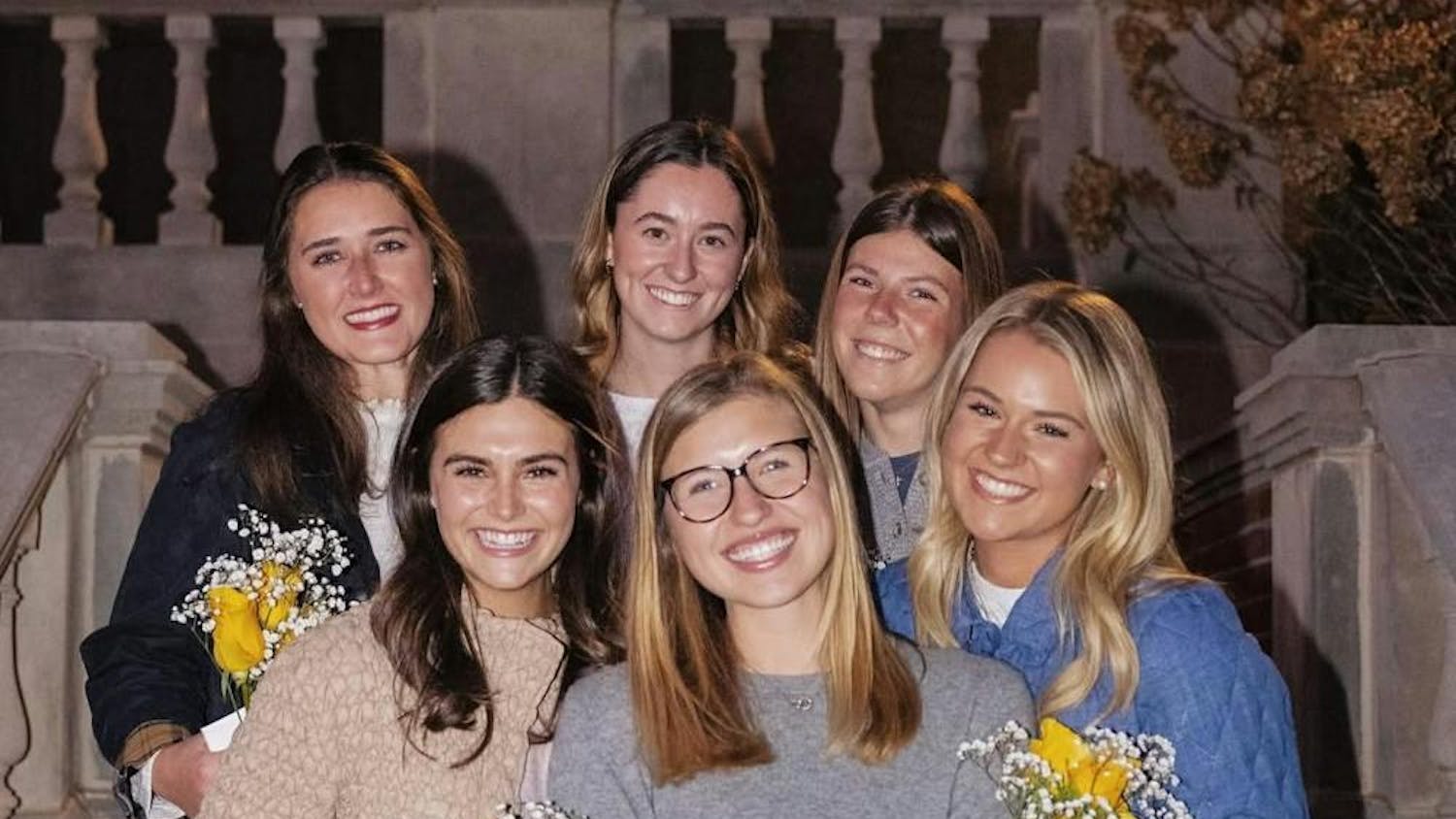In 1989, Yusef Salaam at 15 years old was tried and convicted in the "Central Park Jogger" case, along with four other Black and Latino young men.
Members of the group, which Oprah Winfrey dubbed the "Exonerated Five," spent seven to 13 years behind bars for crimes they didn't commit — until their sentences were overturned in 2002.
Salaam, over the past two decades, has become a family man, father, poet, activist and inspirational speaker.
Salaam regularly advocates for criminal justice reform and prison reform.
The Black Student Union, Emerge at Auburn and the University Program Council hosted Salaam in the Student Center Thursday evening to talk about his life during and after false incarceration.
"We found a list of some people who were in our budget, and we sent a list of all of those people to the student groups and we had them vote," said Alexis Davis, coordinator of student organizations at Auburn. "We saw who was available during our time frame and he was available and one of the highest-ranked people as well."
Salaam attributed the high level of interest people had in hearing him speak in part to "When They See Us," a documentary that premiered on Netflix in 2019. The content of the documentary spans a quarter of a century, chronicling from when the teens are first questioned in 1989, to their exoneration in 2002 and the $40 million settlement they reached with New York City in 2014.
"The interest that people have had, and are having, has a lot to do with the fact that the climate in America is very shaky, but it's always been shaky," Salaam said. "But I think that the attention that the climate is getting is very different. I think today we are seeing more of the oppression being exhibited through social media, through memes and other things. We also have powerful mediums like 'When They See Us' that really bolsters the opportunities to talk about this in a meaningful way."
Salaam spent seven years in prison, from 1989 until 1996 when he was released on parole.
Life in jail was terrible.
"It was one of those things where you have to know that the only way to survive prison is that you have to do the time," Salaam said. "You cannot let time do you because you then turn into the monster as a part of your survival tactics. ... [Surviving] has a lot to do with keeping your dreams in front of you, keeping hope alive, making sure that you know that this too shall pass. When you know you're innocent, you show up in your own space different, knowing that God is the orchestrator of whatever you're going through."
In May 2021, Salaam published his memoir "Better, Not Bitter: Living on Purpose in the Pursuit of Racial Justice" that tells his story of what it's like to be in America as a Black person and to survive the criminal justice system.
Although Salaam received a settlement from the government, reclaimed his innocence and has gone on to write bestselling books, he said that his feelings on everything he's gone through are bittersweet.
"All of those things, they transformed my life and continue to transform it, but the bittersweet part about it is that I know that we should have never gone to prison in the first place," Salaam said. "The other part that we have to consider is that after the Central Park rapist, after he raped the Central Park jogger, one of his last victims was a young pregnant Latina woman — raped and murdered while her children were in the next room. That young lady should've been alive today."
Salaam said that they were victimized, but not in the same way as those victims of rape and murder were because they gave the ultimate sacrifice — and the system believed it had the culprits.
"When the truth came out, yes, it freed us," Salaam said. "But we still have the trauma of that experience that we have to deal with. Part of the beauty of being in Auburn is that as I tell my story with the community, it's also a therapy session."
A part of healing, Salaam said, was understanding that you cannot become enraged.
"The mental capacity that you have to make sure that you stay level-headed and, more importantly, to make sure that you don't fall into the anger and anguish that system may be trying to pull you into," Salaam said. "I'm always reminded of my heroes like Dr. Maya Angelou who taught us how to take anything that is angering us and transform it into a power to change systemic issues. Because ultimately, forgiveness is a tool that is really for you."
Salaam was interviewed by Tyler Ward, senior in political science and member of BSU, and Jalen Sanders, senior adviser to BSU, for 45 minutes before the floor was opened up for questions.
Following the Q-and-A was a meet-and-greet with Salaam.
Before leaving, Salaam imparted some last bit of wisdom in the packed Student Center Ballroom.
"The most meaningful, most important thing I've found that I learned through speaking and sharing and standing in my truth is that I did not just go through this for me," Salaam said. "I went through this for all the other generations that had not yet even been born. If you're a child of a former slave or even a former slave-owner, if you haven't been transformed by hate, you get the opportunity to dream about the kaleidoscope of the human family, about the cohesiveness that allows it to come together and shine as bright as we need to as the human family."
Do you like this story? The Plainsman doesn't accept money from tuition or student fees, and we don't charge a subscription fee. But you can donate to support The Plainsman.

Destini Ambus, senior in journalism, pursuing a minor in sociology is the editor-in-chief of The Auburn Plainsman.





